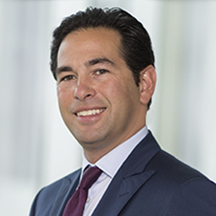

How Music Prevents Cognitive Decline
by Amelia Garrison
Listening to music that has personal significance or meaning, such as the song played at the first dance at your wedding, deeply activates and strengthens the area of the brain that degenerates with Alzheimer’s disease.
A trip down memory lane
A recent study in the Journal of Alzheimer’s Disease found that listening to music improves cognitive performance in patients with Alzheimer’s disease, the most common neurodegenerative condition causing dementia. David A. Merrill, MD, PhD, Adult & Geriatric Psychiatrist at Pacific Neuroscience Institute (PNI), and Scott Kaiser, MD, Geriatrician & Physician, explained why.
“Taking a trip down memory lane with the help of old favorites can give the brain a boost, both cognitively and emotionally. Familiar music has a powerful ability to positively activate the brain.”
Dr. David A. Merrill
Listening to music that has deep personal significance or meaning, such as the song played at the first dance at your wedding, deeply activates and strengthens the area of the brain that degenerates with Alzheimer’s disease. Once this happens, feelings of social isolation and stress decrease, and overall mood and memory improve.
The healing power of music
Drs. Merrill and Kaiser are advocates for using music to heal the mind, especially in older patients.
After the renowned American singer Tony Bennet was diagnosed with Alzheimer’s disease, Dr. Kaiser explained how music has a protective effect on brain health.
“Music and the arts have a very protective effect when it comes to brain health overall,” Dr. Kaiser said. “A lot of that practice and patterns are deeply engrained, so people can continue to do the things that they’ve done for a long time.”
Similarly, Dr. Merrill recalled the success of integrating music into treatment for patients with advanced Alzheimer’s disease. “It was amazing to see patients who otherwise rarely spoke suddenly break into full-throated renditions of classics like, Raindrops keep fallin’ on my head,” he said.
Moving forward

Now, these doctors look forward to the next step in cognitive research: integrating meaningful music into an exercise routine for patients with dementia and mild cognitive impairment (MCI).
We know that exercise improves blood flow and growth factor release in the brain, said Dr. Merrill. However, there is little research on the cognitive effects of combining meaningful music with an exercise routine.
“It will be interesting to see what future studies can be done combining personalized familiar music with activities like exercise, dance, or even singing. We may see that the best effects come with doing it all.”
Dr. David Merrill
PNI’s clinical trials & treatment
Currently, PNI’s Pacific Brain Health Center is running two clinical trials on the benefits of exercise for those with cognitive decline:
- Simultaneous Memory Training and Exercise Mobile Technology Program (mSIM) for Mild Cognitive Impairment: A trial to designed to determine whether combining memory training with physical exercise improves cognitive performance.
- Precision Recommendations for Environmental Variables, Exercise, Nutrition and Training Interventions to Optimize Neurocognition (PREVENTION): This is a trial looking at the effects a multi-modal therapy approach to addressing and treating the root causes underlying Alzheimer’s disease to prevent future mental decline. The PREVENTION trial is looking at how a personalized brain health (FitBrain) coaching program based on one’s unique biological profile and lifestyle can improve mental and functional abilities as well as your quality of life when added to regular medical care.
If you or a loved one is interested in learning more about participation in a clinical trial, visit the Pacific Brain Health Center’s clinical trials and research page.
Read the full article on VeryWellMind.com.
More information: 310-582-7641
About Dr. David A. Merrill

David A. Merrill, MD, PhD, is an adult and geriatric psychiatrist with double-board certification by the American Board of Psychiatry and Neurology. He is director of the Pacific Brain Health Center at Pacific Neuroscience Institute, and has worked for several decades with patients suffering the behavioral health sequelae of age-related neurodegenerative disorders such as Alzheimer’s disease and Parkinson’s disorder. His more recent clinical and research work has expanded to include patients with a history of head trauma, tumor, and stroke. Through his early adoption of emerging clinical practice technologies, Dr. Merrill has developed a “precision holistic” approach that combines personalized genetic and biomarker data with the best evidence-based treatments available for alleviating depression and cognitive dysfunction within the context of aging.
About Dr. Scott Kaiser

Scott Kaiser, MD, a board-certified family physician and geriatrician, is the Director of Geriatric Cognitive Health and provides specialty geriatric medical consultations at the Pacific Brain Health Center. Focused on the needs of older patients, he works with his colleagues to provide an integrated and holistic approach to their cognitive challenges. With this “whole person” approach, Dr. Kaiser works to connect patients and their families with a broad range of resources to support their overall health and well-being.
Related Links:
About the Author

Amelia Garrison
Amelia Garrison is the Marketing Specialist at Pacific Neuroscience Institute (PNI). Well versed in community outreach strategy and implementation, she leads the PNI blog, newsletter, and digital communications. Amelia oversees PNI's reputation management and community sponsorships.
Last updated: January 18th, 2022
